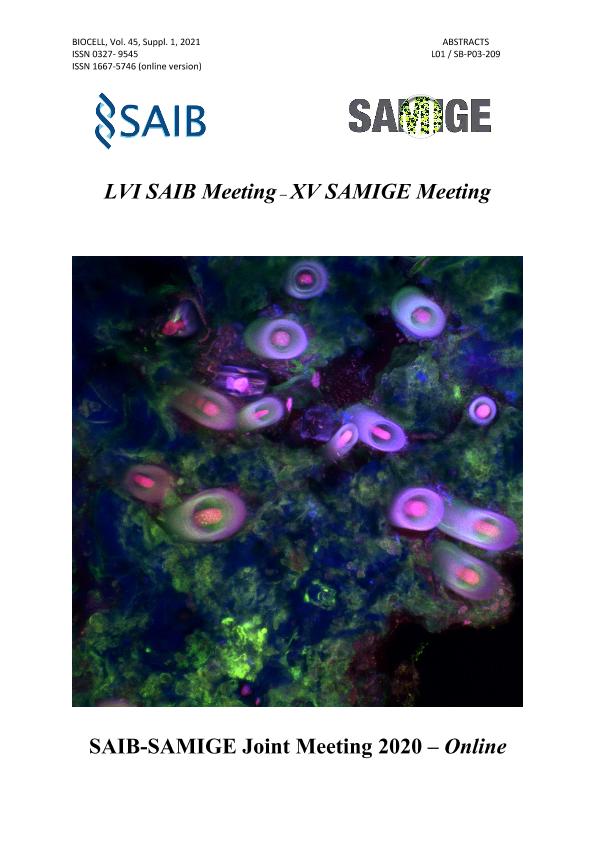Evento
Analysis of E2FA protein in the response of arabidopsis thaliana plants to UV-B radiation
Tipo del evento:
Reunión
Nombre del evento:
LVI Annual Meeting Argentine Society for Biochemistry and Molecular Biology; XV Annual Meeting Argentinean Society for General Microbiology
Fecha del evento:
02/11/2020
Institución Organizadora:
Sociedad Argentina de Investigación en Bioquímica y Biología Molecular;
Sociedad Argentina de Microbiología General;
Título de la revista:
Biocell
Editorial:
Tech Science Press
Idioma:
Español
Clasificación temática:
Resumen
Plants use sunlight to direct and regulate essential processes. Among the components of solar radiation is UV-B radiation (280-315 nm) that at high intensities generates harmful effects on plants. Because of this, plants have developed multiple mechanisms of tolerance and adaptation to UV-B radiation. Among the effects caused by high doses of UV-B radiation in plants are damage to DNA, lipids and proteins. Two common plant phenotypes after UV-B exposure are inhibition of leaf growth and primary root elongation.The shape and architecture of plants are determined by processes that modulate growth and differentiation of organs, which control the number, size and type of cells that constitute them. One of the pathways involved in the regulation of cell division, growth and differentiation is the Retinoblastoma pathway, in which the Retinoblastoma protein (RBR), the E2F transcription factors and the DP dimerization proteins participate. This pathway regulates the G1/S cell cycle transition, one of the key stages of cell cycle control in eukaryotes. E2F transcription factors serve crucial and antagonistic roles in several pathways related to cell division, DNA repair, and differentiation. In particular, E2Fa activates transcription binding to DNA cooperatively with DP proteins through a specific recognition site that is found in the promoter region of several genes whose products are involved in cell cycle regulation or DNA replication.Based on this, the aim of this work is to understand the participation of E2F transcription factors, in particular E2Fa, in the response of Arabidopsis thaliana plants to ultraviolet-B radiation. In the laboratory, using mutant lines in the E2Fa gene (e2fa-1), we observed that the primary roots are less affected by a treatment with UV-B radiation than WT lines, when we analyzed their elongation and also at the cellular level. In addition, the primary roots of e2fa mutants showed significantly fewer dead meristematic cells after a UV-B treatment than WT plants. Regarding the aerial part of the plants, we also found that growth of the proliferating leaves of e2fa-1 lines is less affected by UV-B radiation than the WT leaves. Together, these results suggest that E2Fa regulates growth, development and programmed cell death in response to UV-B radiation.
Palabras clave:
UV-B
,
Cell cycle
,
E2F
,
arabidopsis
Archivos asociados
Licencia
Identificadores
Colecciones
Eventos(CEFOBI)
Eventos de CENTRO DE EST.FOTOSINTETICOS Y BIOQUIMICOS (I)
Eventos de CENTRO DE EST.FOTOSINTETICOS Y BIOQUIMICOS (I)
Citación
Analysis of E2FA protein in the response of arabidopsis thaliana plants to UV-B radiation; LVI Annual Meeting Argentine Society for Biochemistry and Molecular Biology; XV Annual Meeting Argentinean Society for General Microbiology; Argentina; 2020; 64-64
Compartir




